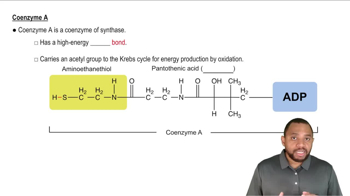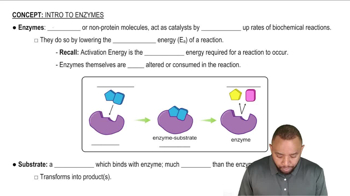Maltase is an enzyme that hydrolyzes maltose to two glucose molecules.
b. Draw an energy diagram for the reaction with and without maltase.
 Verified step by step guidance
Verified step by step guidance Verified video answer for a similar problem:
Verified video answer for a similar problem:



 2:14m
2:14mMaster Intro to Enzymes Concept 1 with a bite sized video explanation from Jules
Start learning